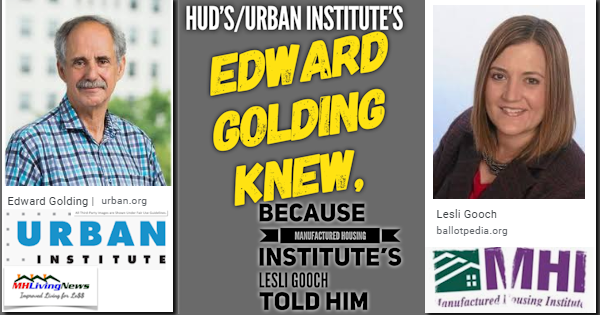First, the good news. Then, we’ll follow the good news up with what’s problematic. This will be systematic: quotes, facts, and eye-opening insights.
 “People live better when they have less financial stress,” Lindsey Bostick said. “They can do more of what they really want to do with their lives when they pay less for their home.”
“People live better when they have less financial stress,” Lindsey Bostick said. “They can do more of what they really want to do with their lives when they pay less for their home.”
She explained that, “I didn’t sacrifice by buying a manufactured home, I’m money ahead. The intelligent, informed professionals, business people, builders, real estate agents and others who are buying and selling manufactured homes are proof that the industry has evolved.”
- Some 22 million Americans live in a pre-HUD Code mobile home or a post HUD Code manufactured home. They deserve respect.
- Another 111 million Americans, per the Apartment List in 2019, live in rental housing. National Association of Realtors (NAR) and other research routinely reflects that some 80 percent of those renters want to be homeowners.
After researching manufactured housing for the NAR, Certified Business Economist (CBE) Scholastica Cororaton pointed out that most renters’ payments would qualify them to finance a manufactured home. She also said the following – that based upon third-party research – would surprise many.

In launching MHLivingNews several years ago, we perhaps naively thought that facts, evidence, and personal accounts alone would make the difference. To be sure, those true stories have been important and useful. Interviews like the one shown were real, we didn’t pay those interviewed. Nor did we hand someone a script. We asked questions, real people replied. Numbers of videos like these are on this website.
But other voices slowly prevailed upon us to ponder the following. Arguably corrupt practices have artificially and unjustly limited the manufactured housing industry. Several of those practices are from within the industry, or are tied to those who know the industry. That was a missing piece of the puzzle, until we spent more time focused on those vexing issues and the evidence for those concerns too.
Indeed, the question should have been, why didn’t the Manufactured Housing Institute (MHI), which claimed to want to see the industry grow and recover sustainably, at a minimum encourage others to follow the work done here? Was it because they didn’t really want the industry to grow ‘too quickly?’ Isn’t that what MHI’s own president said in the video clip posted below?
Indeed, as input from other voices plus, observation, fact-checks, investigations, and experience have all revealed, while MHI paid lip service to praising our work, they did little of practical value to promote the industry that they claimed they wanted to grow. So, in hindsight, we had a little fun with this video clip of MHI President Richard ‘Dick’ Jennison praising what they were arguably undermining.
For those who’ve followed our work for years, they know we have always been true believers in manufactured homes. What was missing, here’s my admission, was the debatable understanding of how the MHI game was being played to hobble the industry that they claimed to represent. The purpose? Purportedly to help consolidate the industry into ever fewer hands. This writer, as a now former MHI member who was elected to serve on an MHI board, has been on both sides of that MHI debate.
Before getting into Edward Golding, formerly with HUD, a Government Sponsored Enterprise, and now with the Urban Institute, plus Lesli Gooch, Ph.D. – whom some think might replace Jennison as MHI’s president – a bit more background is warranted. BTW, the image below will be used to make a point later in this article.
Evidence for, Evidence Against…
My better half Soheyla and I enjoy and benefit from a good quotation, so it is no surprise that we like sharing quotes. When sharing a quotation, that doesn’t imply that we are thereby endorsing all that the person or organization that made the statement has done. In fact, sometimes we share a quote precisely to reveal the hypocrisy or inconsistencies of the person or organization in question. So, readers should never presume that we endorse someone or some operation because they are quoted. The ancient principle of the wisdom of separating the wheat from the chaff applies to us all.
Warren Buffett is known for many an insightful statement. Among them is the quotation below. The fact that we’ve quoted him isn’t an endorsement, as those who have carefully read this report with video linked here know. But the idea he shared is demonstrably correct. The past is easier to understand than the future. That said, the best predictor of future behavior is past performance and prior actions.
The manufactured home industry is underperforming. There are any number of industry professionals who are frustrated about that and have their thoughts about that subject.

Among them is Curt Hodgson, co-founder of Legacy Housing (LEGH), who said this recently according to the conference call transcript.
For some years, Manufactured Home Living News and our professional sister-site – MHProNews – have stressed the importance of the Manufactured Housing Improvement Act (MHIA) of 2000 and the enhanced preemption clause in it to current and potential home seekers. Mark Weiss, J.D., President and CEO of the Manufactured Housing Association for Regulatory Reform (MHARR) who helped craft the language of the MHIA law – explains its importance and value as follows.

This is essential to maintaining the uniformity of manufactured housing construction and safety regulation and maintaining the fundamental affordability of HUD Code homes.
As a corollary, it is designed to prevent local jurisdictions from imposing their own costly standards on HUD Code homes, or using standards or other devices, such as discriminatory zoning measures, to exclude HUD Code homes.
This benefits homebuyers by ensuring a uniform, cost-effective set of standards for construction and safety, while it benefits independent businesses by reducing the type of regulatory compliance burdens that would ensue if thousands of jurisdictions around the country were free to impose their own unique or differing standards or requirements.
Ultimately, this helps expand homeownership opportunities for millions of lower and moderate-income Americans, while it helps industry businesses to grow and provide employment opportunities in the nation’s heartland.”
It should be noted that Hodgson spoke specifically about zoning and placement hassles, and what they are trying to do on that topic. Hodgson’s firm is a member of the Manufactured Housing Institute (MHI), as is Skyline Champion, and as this time, neither of those two firms are known to be members of MHARR.
While there are plenty of reasons given for industry underperformance – including, but not limited to – widespread misunderstanding about:
- the difference between the mobile homes from over 4 decades ago to the manufactured homes today
- or financing,
- a common concern for years has been placement related issues.
MHLivingNews published an article on that topic researched and written by an award journalist, found at this link here and from the image below. That report cites several experts and professionals.

Indeed, it was about that time that Lesli Gooch, Ph.D. and then Senior Vice President of Government Affairs & Chief Lobbyist for MHI, sent key HUD officials a formal letter on behalf of MHI. That letter from Gooch copied: Pamela Danner, Administrator, Office of Manufactured Housing Programs (OMHP) and Rick Robinson, MHI General Counsel/Senior Vice President, State & Local Affairs.
In a letter dated May 26, 2016, Gooch addressed the following officials at HUD.
“Edward L. Golding
Principal Deputy Assistant Secretary
Office of Housing
Department of Housing and Urban Development (HUD)”
and
“Helen R. Kanovsky
General Counsel
Department of Housing and Urban Development (HUD).”
All of these names and titles will prove important, as what follows will reveal.
The letter from Gooch had this as its subject line.
“RE: HUD’s Preemption Policy Regarding its Manufactured Housing Construction and Safety Standards”
It begins like this.
“Dear Mr. Golding and Ms. Kanovsky:
On behalf of the Manufactured Housing Institute (MHI), I wanted to bring to your attention a growing trend of municipalities using zoning ordinances to mandate manufactured housing construction standards beyond the HUD Code and as a result effectively “zoning out” manufactured housing. Unchecked, this trend could reduce the supply of critically needed affordable housing across the country. We ask that HUD develop a more robust pre-emption policy based on the 2000 Manufactured Housing Improvement Act and take a more proactive role in discouraging these efforts.”
“There are numerous examples where municipalities have used arbitrary land planning to adversely impact the placement of manufactured homes. The City of Pearl, MS presents one striking example: The municipality attempted to use zoning requirements to impact what type of homes could replace ones that have been moved from a land lease community, with the result of making it nearly impossible to replace units.” It notes that while HUD helped, it failed to resolve that matter.
It is an open question if MHI may have borrowed language in her letter from documents submitted by MHARR to federal officials that are public record. If so, it is not so attributed. That noted, Gooch’s letter also said this.
“We believe that HUD has the authority to move beyond a case-by-case approach to this
challenge. The Manufactured Housing Improvement Act of 2000 (the Amended Act) significantly strengthened the preemptive language originally contained in the National Manufactured Housing Construction and Safety Standards Act of 1974. One of the purposes of the Amended Act is to “ensure uniform and effective enforcement of Federal construction and safety standards for manufactured homes.” The amended statute also specifies; “Federal preemption….shall be broadly and liberally construed to ensure that disparate State or local requirements or standards do not affect the uniformity and comprehensiveness of the standards….” Yet, despite this broadened authority that was granted in 2000, the last time HUD updated its guidance in this area was in 1997. Though this guidance prohibited municipalities from using manufactured housing construction and safety code standards that are different from the HUD code to regulate or exclude manufactured housing, we believe the Amended Act largely renders this guidance obsolete.”
Gooch stated that, “As further background, we have attached our correspondence with the Office of Manufactured Housing Programs (OMHP) and the Office of the General Counsel (OGC) on these matters in June 2015, December 2015, and March of 2016. We have not received any response to these letters. In addition, below is a table of sample cases from municipalities where zoning requirements are having an adverse impact on manufactured home communities.”
Her letter on MHI letterhead is linked here as a download which includes examples of jurisdictions that failed to follow the enhanced preemption mandate.
MHI’s Iceberg – Above and Below the Surface
Most of an iceberg is beneath the water’s surface. On the surface, this MHI letter is useful on several levels. First, it connects the dots on MHLivingNews’ prior point about Golding being knowledgeable about the issue of enhanced preemption. Edward Golding was cited in a report linked here.
Golding was part of a 4-person team that wrote a report for the Urban Institute, linked here and found as a download at this link here.
Their research was useful, but arguably incomplete. Why? How so?
Because while they stated certain points correctly, they failed to state other key items at all. Among the items missed or ignored? The enhanced preemption provision of manufactured housing.
Three key reasons why the Urban Institute (UI) research/writers identified were as follows.
- Restrictive zoning
- Restrictive or unavailable financing
- Lower appreciation
Let’s note that in 2018, the National Association of Realtors (NAR), the Federal Housing Finance Administration (FHFA) and the Urban Institute all pointed out that manufactured homes do in fact appreciate. MHLivingNews, and our sister site MHProNews, have said for years that the value of manufactured homes rise-or-fall for the same reasons as conventional housing does. Those include, but are not limited to, the following factors.
- Location.
- Availability of reasonable financing.
- Local market conditions.
- Condition of the home (how well a home is maintained).
- Other factors, such as comps or the understanding of an appraiser, matter too.

The Urban Institute agreed with the financing aspect of that, in these words. “Some [studies] show similar appreciation, and others show slightly lower appreciation. Lower appreciation for manufactured housing may be because of the lack of financing options available for older manufactured homes, which affects resale value.”
Rephrased, the lack of financing access is an aspect of the sometimes lower appreciation value of manufactured homes. But what Golding and company didn’t say is in their analysis is that HUD/FHA and the Government Sponsored Enterprises have arguably failed for years to properly support manufactured homes. The I’m Home research cited by American Banker made it clear that manufactured home loans – even with no or low down payments – perform on par with conventional housing. That research was based in part upon USDA lending data.
But FHA, a subdivision of HUD, has for years had a restrictive 10/10 rule on manufactured home Title I lending. At last check, only three manufactured home lenders technically able to make the FHA Title I ‘home only’ loans: 2 are units of Berkshire Hathaway, one is an affiliated lender of Cavco Industries.
- Cavco Industries Chairman and CEO used to be Joe Stegmayer, who was previously a division president at Clayton Homes.
- Vanderbilt is a captive lender for Clayton Homes. Both are owned by Chairman Warren Buffett’s Berkshire Hathaway.
- 21st Mortgage, also owned by Berkshire, which per reports has for about the last 2 years stopped making FHA Title I loans, which were previously offered to independent manufactured home retailers and communities.
There could, in theory, with some modest tweaks, be changes to FHA Title II, USDA (Rural Housing), and VA lending that would make more financing available for manufactured home purchases at competitive rates. Who would be harmed by that? Among others, Berkshire Hathaway, which routinely lends at higher rates.
Rephrased, what this Urban Institute report said – while useful – is equally interesting for what it didn’t say but should have. Golding, pointing to his role at HUD, is reportedly known to be aware of these facts. The letter from Gooch documents a specific ‘ask’ for enhanced preemption to be made part of the routine at HUD.
So given his years of knowledge of such matters, why didn’t Golding mention these factors in the Urban Institute research? Who benefited from that failure to complete the research that UI published?

Gooch’s letter says that the request for HUD to enforce enhanced preemption had been made several times, without reply. Why? Isn’t part of HUD’s job to make more affordable housing available?
MHI is dominated by Berkshire Hathaway brands. Cavco’s former president, Joe Stegmayer, has also served on the MHI executive committee, where the ‘power’ is at MHI.
MHI can point to letters like Gooch’s, but they cut both ways. That letter or others document an ‘ask,’ but where is the follow through? Is the MHI ask just a fig leaf? Is the ask for having enhanced preemption enforced merely posturing for their often-trusting audience? Why is there no evidence of this on MHI’s own website?

By contrast, MHARR’s website has numerous references to preemption.

The scenario is rife with the stench of conflicts of interest.
But there is more. Let’s dig further.
On a conference call reported by MHProNews is the following.

Matchneer said during that public comments portion of the conference call that the HUD ‘general counsel at the time’ he 
Matchneer explained that without a HUD general counsel’s backup, he was left with a ‘letter writing campaign’ that worked about ‘4 times out of 5’ to get enhanced preemption enforced by a local jurisdiction that was in apparent violation of federal law.
Matchneer went on today to say that ‘It is a lot more authoritative to have general counsel’ issue a statement and that pressing 
In a follow up to his statement, Matchneer told MHProNews via email that his comments were not prepared, but rather sprung up as a response to the discussion on the preemption issue and its importance. Matchneer “just said what was on my mind. The point is that preemption enforcement is a matter for OGC [Office of General Counsel], and OGC should be prepared to ask DOJ to bring an action if a local jurisdiction refuses to comply with the preemption requirements of the Act.”
Note that the comments referenced the OGC, Office of General Counsel. Gooch addressed the OGC. Why hasn’t HUD’s general counsel sought to enforced the law?
The loop is tightly closed in the outline above and from what is linked and referenced herein. To use a puzzle analogy, the pieces fit.
But let’s take a few more relevant points.
While MHI had raised the issue of several jurisdictions that restricted or barred manufactured home placements, what MHI doesn’t say is that they were asked to intervene in several cases of discrimination against manufactured housing, including in Bryan, TX earlier this year (2019). MHI declined time and again. Why? If they were sincere, why not send a letter, an email, something?
MHI’s general counsel, Rick Robinson, J.D. is a published author. One of Robinson’s titles is a book called “Writ of Mandamus.” While I was an MHI member, I would periodically ask, why not force HUD’s hand? Why not take legal action?
Legal action may become necessary, at some point, was one reply from then MHI Chairman Tim Williams in a room with several dozen witnesses present. Williams is the president of 21st Mortgage Corp. 21st is a Berkshire brand. Enforcing the law on Duty to Serve would cut into profits, as Warren Buffett himself recently said in a video with Berkshire vice chair Charlie Munger. What they want instead is to make loans on more expensive manufactured homes that Clayton and MHI is backing. But what about the millions that want AFFORDABLE housing?

By the way, Williams praised the work – at that time – being done by MHLivingNews and MHProNews.
That praise ended as we kept asking more questions about seemingly logical steps that were not being taken by MHI.
When this writer asked, as a member of that Arlington, VA based trade group for:
- association bylaws,
- conflict of interest disclosures,
- and other documents that should have been made available, MHI sent an unsigned letter ejecting me from membership.
Their excuse? Their stated reason was that MHI had no membership category for “news.” Oddly, others who claim to do news, blogging, or publishing were okay to stay. MHI knew we were news, as Williams’, Jennison’s, and most everyone at MHI’s own statements made clear.
But they also knew that we did other professional services. It was a sham excuse, it gave them cover to say whatever to whomever about why we were no longer MHI members, and we still have that unsigned document. But what that step by MHI did was just make us that much more curious. Why eject us when they’d praised us for so long? Why eject us as members, when our goal was for ethical, sustainable industry growth?
The revolving door scenario MHI/HUD/Urban Institute and other crossties are rife with the bad odor of conflicts of interest and contradictions.
MHARR Striving to Hold MHI, HUD, Others Accountable
MHARR has weighed in on several of these issues. It is far smaller than MHI, but routinely hits themes in a way that makes sense.
For example, MHARR has called for a federal investigation by Congress of the mishandling of the Duty to Serve (DTS).

MHARR has addressed HUD Secretary Carson to enforce enhanced preemption. There has been no reply. Has Dr. Carson, who has praised manufactured homes, but has not publicly been known to mention enhanced preemption, every seen the letter from MHARR?
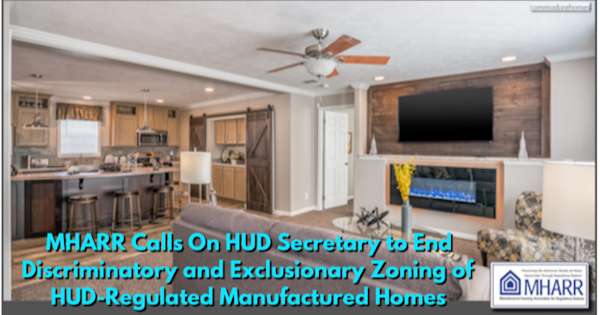
MHARR offered to do what MHI was not doing, take legal action. Perhaps out of fear, state association executives failed to engage, in all but one case, says MHARR. If they want the industry to grow, why not accept MHARR’s generous and common sense offer?
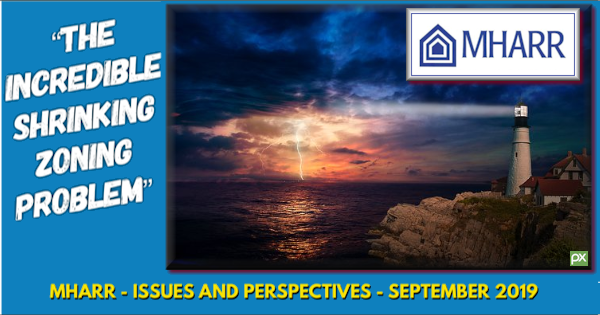
Resident community leaders are tuning into these issues.
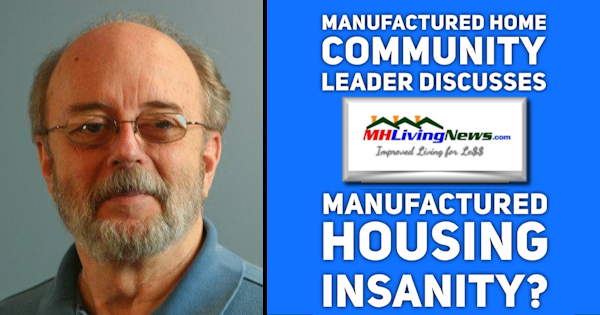
Examples of comments are linked above and below.

Lawmakers on both sides of the political aisle have praised manufactured homes.
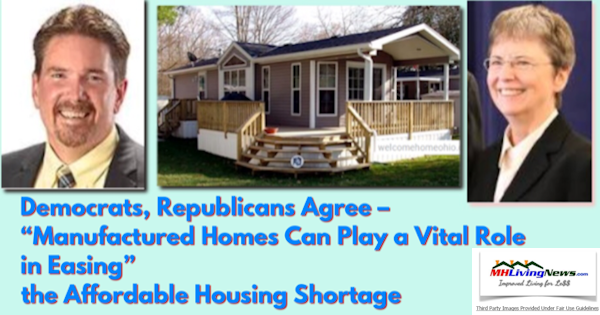
Senator Tina Smith has called on her Senate colleagues to act on the DTS issue, in a manner similar to what MHARR has.

Communications between this writer and federal officials have revealed they find the information to be credible, sobering, and worthy of federal investigation.
But who will act?
The items that people fear about manufactured housing has been debunked by decades of research.

The lack of action on these matters is costing the U.S. economy some $2 trillion annually, per this report on Value Penguin.
MHLivingNews took that same information and illustrated it at this link below.

- 111 million Americans, tens of millions of whom could own become home owners, per 2018 NAR research data cited here.
- Numbers of the 22 million living in some 8.8 million pre-HUD Code mobile homes or post HUD Code manufactured homes could enjoy more appreciation, and lower interest rates, if existing laws were being enforced.
Who will act? Who will investigate and then hold any and all who are round guilty of violations of the law? Federal and state officials often have subpoena power. There is more than enough evidence that bears official scrutiny.
Ironically, Senators Elizabeth Warren, Bernie Sanders, and President Donald J. Trump have all said something similar.
The system is rigged. Millions are harmed. Federal research during the Obama Administration documented that manufactured homes and conventional housing appreciated side-by-side. There is no harm to conventional housing values. While they didn’t specifically mention manufactured homes, Trulia research since then which has had similar findings.
Millions are arguably being denied their constitutional rights to private property.
Based upon the above, isn’t it easy to concur that the system has been rigged by the few to the harm of the many? Which legal and public officials will act?
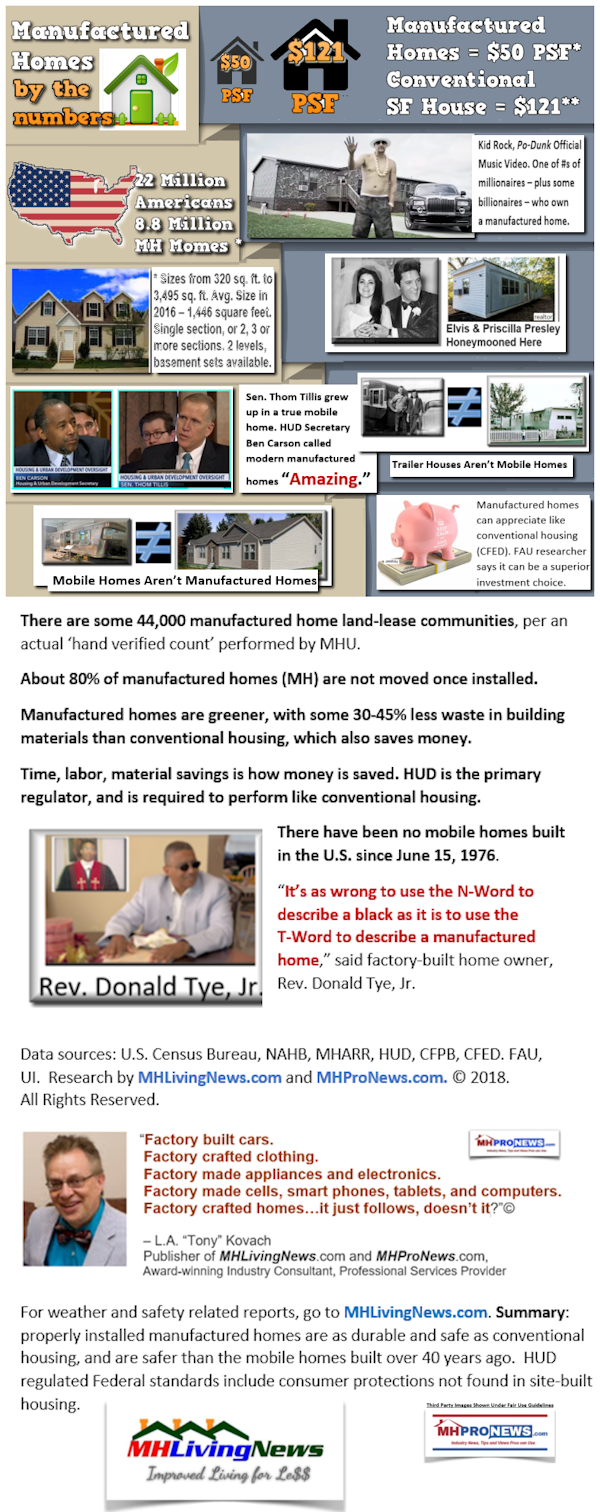
It is time to get public officials to act and enforce good, existing laws. “We Provide, You Decide.” © (Lifestyle news, reports, fact-checks, analysis, and commentary. Third-party images or content are provided under fair use guidelines for media.)

By L.A. “Tony” Kovach – for MHLivingNews.com.
Tony earned a journalism scholarship and earned numerous awards in history and in manufactured housing. For example, he earned the Lottinville Award in history from the University of Oklahoma, where he studied history and business management. He’s a managing member of LifeStyle Factory Homes, LLC, the parent company to MHProNews, and MHLivingNews.com. This article reflects the LLC’s and/or the writer’s position, and may or may not reflect the views of sponsors or supporters.
Connect on LinkedIn: http://www.linkedin.com/in/latonykovach
Related References:
The text/image boxes below are linked to other reports, which can be accessed by clicking on them.
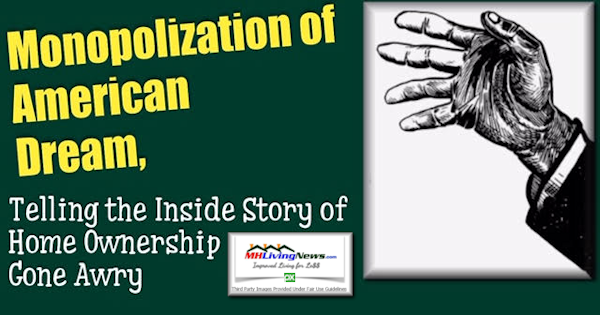


 manufacturedhomelivingnews.com Manufactured Home Living News
manufacturedhomelivingnews.com Manufactured Home Living News
